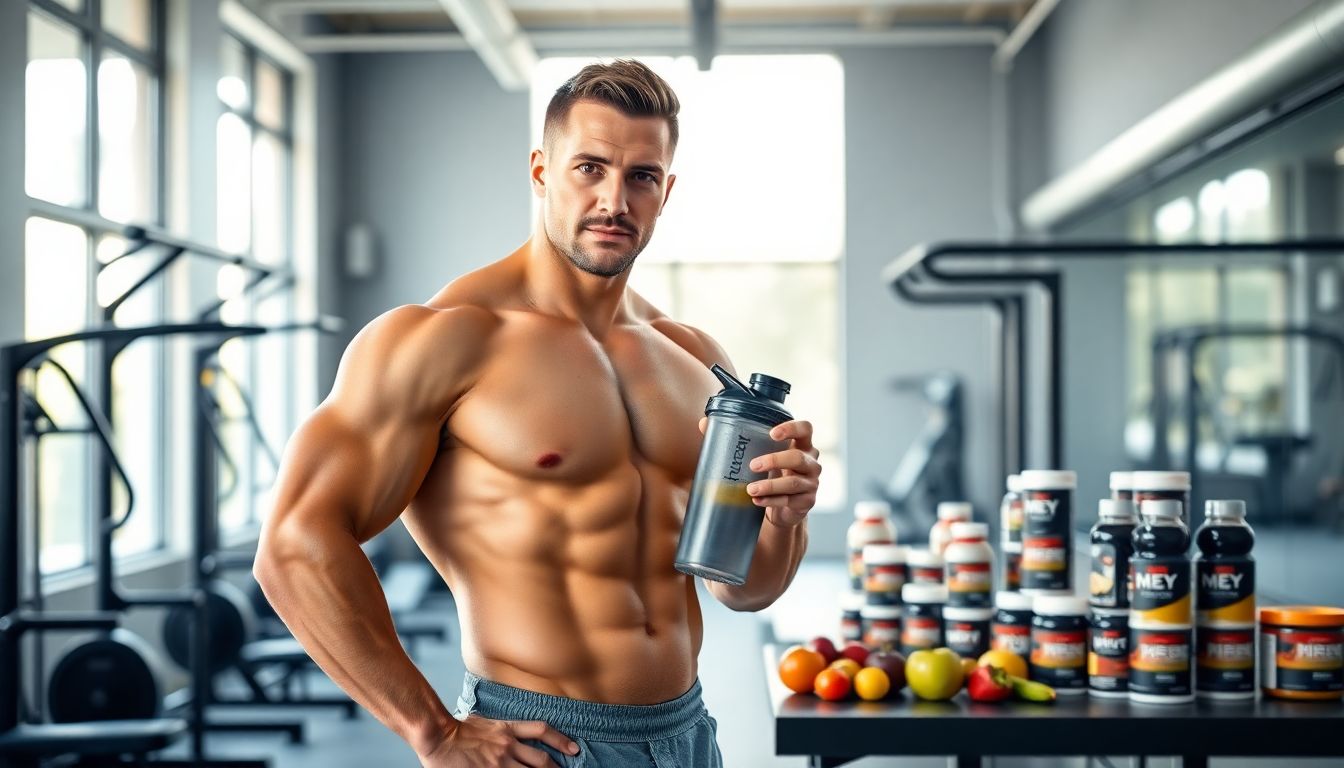The Ultimate Men's Fitness Diet Guide

Fuel Your Gains: The Ultimate Men's Fitness Diet Guide
Diet is creative, and so is fitness. According to studies, approximately 70% of physical fitness stems from appropriate nutrition. In order to reach fitness targets like muscle gain, weight loss, and so on, here are some things that you MUST adapt into your meal plan as a man. This article discusses macronutrients, timing of meals, sample meal plans, supplements, and mistakes to avoid.
Breaking Down Macronutrients: The Building Blocks of Your Meals
Protein Powerhouse
Protein is essential for building and repairing muscle. After workouts, it’s crucial for mending tissues. An intake of about 1.2 — 2.2 grams protein per kg body weight (fitness level & goals dependent) is advisable for men (Source: Journal of Sports Sciences).
High-protein food examples:
- Chicken breast
- Turkey
- Eggs
- Greek yogurt
- Lentils
Carbohydrate Considerations
Carbohydrates provide energy for workouts. They can be categorized as simple or complex. Simple carbs are found in sugary foods and offer quick energy, while complex carbohydrates, like whole grains and vegetables, provide sustained energy.
Benefits of complex carbohydrates:
- Steady energy
- Better nutrient absorption
- Longer satiety
Carb cycling can be beneficial for some, where carb intake fluctuates depending on workout intensity.
Healthy Fats: Fueling Your Body
Healthy fats are vital for hormone production and overall health. Aim to include sources of unsaturated fats while limiting trans fats and saturated fats.
Good fat sources:
- Avocados
- Nuts and seeds
- Olive oil
- Fatty fish
Meal Timing Strategies for Optimal Results
Pre-Workout Fuel
Proper pre-workout nutrition can enhance performance. Eating complex carbs and protein 30-60 minutes before exercising fuels the body.
Examples of suitable pre-workout meals:
- Oatmeal with fruits
- Whole grain toast with nut butter
- Greek yogurt with granola
Post-Workout Recovery
The anabolic window is crucial for recovery. Consuming a mix of protein and carbohydrates within 30 minutes post-exercise aids in muscle recovery and growth.
Optimal postworkout meals or shakes:
- Protein shake with a banana
- Grilled chicken with quinoa and veggies
- Tuna salad with whole-grain bread
Hydration: The Often Overlooked Essential
Water is vital for health and performance. Staying hydrated helps with muscle recovery and nutrient transport. Aim for at least 3.7 liters per day.
Sample Meal Plans for Different Fitness Goals
Muscle Building Meal Plan
- Breakfast: 4 scrambled eggs, whole-grain toast, and a banana
- Lunch: Grilled chicken, brown rice, and broccoli
- Snack: Protein shake and almonds
- Dinner: Salmon, sweet potatoes, and asparagus
Target: 3,000 calories, 250g protein, 350g carbs
Weight Loss Meal Plan
- Breakfast: Greek yogurt with berries
- Lunch: Turkey wrap with lettuce and tomatoes
- Snack: Celery with peanut butter
- Dinner: Stir-fried tofu with mixed vegetables
Target: 1,800 calories, 150g protein, 150g carbs
Maintaining a Healthy Weight Meal Plan
- Breakfast: Overnight oats with nuts and fruit
- Lunch: Quinoa salad with chickpeas
- Snack: Cottage cheese with pineapple
- Dinner: Grilled chicken with mixed greens
Target: 2,400 calories, 180g protein, 200g carbs
Supplements: To Use or Not to Use?
Protein Powders
Protein powders can be convenient for meeting protein needs. Choose quality products, avoiding excessive added sugars. Be aware of possible digestive issues.
Creatine
Creatine enhances muscle strength and power. It's safe when taken in recommended doses of about 3-5 grams daily (source: American College of Sports Medicine).
Other Supplements
Common supplements include preworkout formulas and BCAAs. Use them responsibly, understanding the potential risks and benefits.
Avoiding Common Dietary Pitfalls
Processed Foods and Sugary Drinks
Excessive consumption of processed foods and sugary drinks can derail fitness goals. They often lead to weight gain and health issues.
Portion Control and Mindful Eating
Pay attention to portion sizes and practice mindful eating to prevent overeating. Slow down while eating helps recognize hunger cues.
Alcohol Consumption
Alcohol can hinder fitness goals. Moderation or avoidance is recommended. It adds empty calories and can affect recovery and performance.
Conclusion
In summary, a proper diet plays a vital role in men’s fitness goals. Understanding macronutrients, utilizing meal timing, and avoiding common pitfalls can greatly enhance results. A balanced diet supports muscle gain, weight loss, and overall health. Consider consulting a registered dietitian or healthcare professional for personalized guidance.





